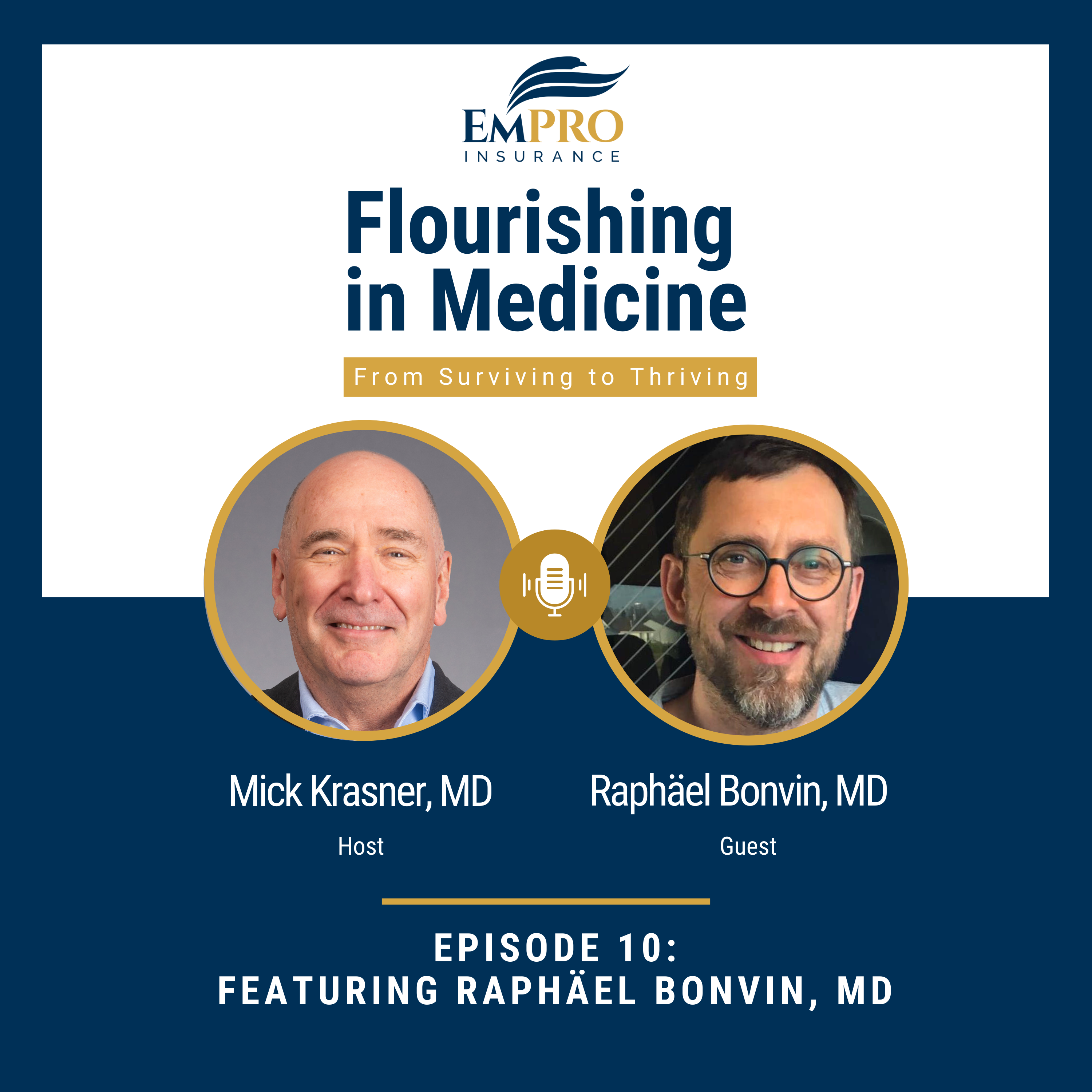Listen to Episode 10 Below:
This episode’s guest is Dr. Raphäel Bonvin, Vice President of Education, Section of Medicine at Université de Fribourg – Universität Freiburg and Professor of Medical Education, Fribourg, Switzerland. Raphäel discusses his journey into medicine, highlighting his initial interest in physics, biochemistry, and medicine, ultimately choosing medicine for its humanistic dimension. His early training in traditional Chinese medicine and parallel training in acupuncture and homeopathic medicine influenced his decision to continue his studies, as he recognized early on a disconnect between how he was being taught and the educational elements and approaches necessary to become a skilled physician. His interest in this topic deepened, and through a series of events, his career path turned toward a central focus on medical education. He has been an influential and effective leader in shifting the focus of assessments in medical education from knowledge-centric assessments to a system of formative assessments, ones that are designed as truly learning tools and emphasizing the role of student reflection and the development of critical competencies beyond only knowledge and skills.
In his work at the University of Fribourg medical school, Raphäel discusses the programmatic assessment approach in medical education, emphasizing the importance of considering multiple sources of information rather than relying solely on grades. The speaker explains the concept of measuring points as pieces of information, like how we use multiple data sources in the clinical setting such as lab data, clinical interpretation, and personal experience to influence clinical decision-making. Here, multiple data points and sources are used to provide a holistic view of a student’s progress. The program aims to move away from traditional grading and focus instead on providing this assessment information openly to students, with the expectation that they reflect on those data and use them to build learning plans to address key competencies necessary to be successful as a physician, including self-awareness skills and self-care. The conversation highlights the importance of resilience, innovation, and personal well-being in the field of medical education, as well as the importance of incorporating real substantive changes in the culture of medicine, beginning with undergraduate medical education, to help these future physicians flourish in medicine.
Guest:
Raphäel Bonvin MD
Professor, Faculty of Medicine
Vice President of Education, Section of Medicine
University of Fribourg, Switzerland
PhD Candidate, Maastricht University, The Netherlands
Faculty Page, University of Fribourg
https://www.unifr.ch/med/de/section/staff/prof/people/229455/d8dea
Other resources:
Bonvin R, Bayha E, Gremaud A, Blanc PA, Morand S, Charri I, Mancinetti M. Taking the Big Leap: A Case Study on Implementing Programmatic Assessment in an Undergraduate Medical Program.Educ. Sci. 2022, 12:425. https://doi.org/10.3390/educsci12070425
Rey A, Bonvin R, Cantin B. Étudiant-e-s en médecine face à la mort: chassez le spectre, il revient au galop [Medical students facing death: death is the only certainty in life]. Rev Med Suisse. 2023 Dec 20;19(855):2399-2401. French. doi: 10.53738/REVMED.2023.19.855.2399. PMID: 38117109.
Walker M, Grandmaison G, Bonvin R, Mancinetti M. Pédagogie de l’incertitude en médecine [How To Teach Uncertainty Management]. Rev Med Suisse. 2023 Feb 8;19(813):264-266. French. doi: 10.53738/REVMED.2023.19.813.264. PMID: 36753342.
Gustin MP, Abbiati M, Bonvin R, Gerbase MW, Baroffio A. Integrated problem-based learning versus lectures: a path analysis modeling of the relationships between educational context and learning approaches. Med Educ Online. 2018 Dec;23(1):1489690. doi: 10.1080/10872981.2018.1489690. PMID: 29966510; PMCID: PMC6041782.
